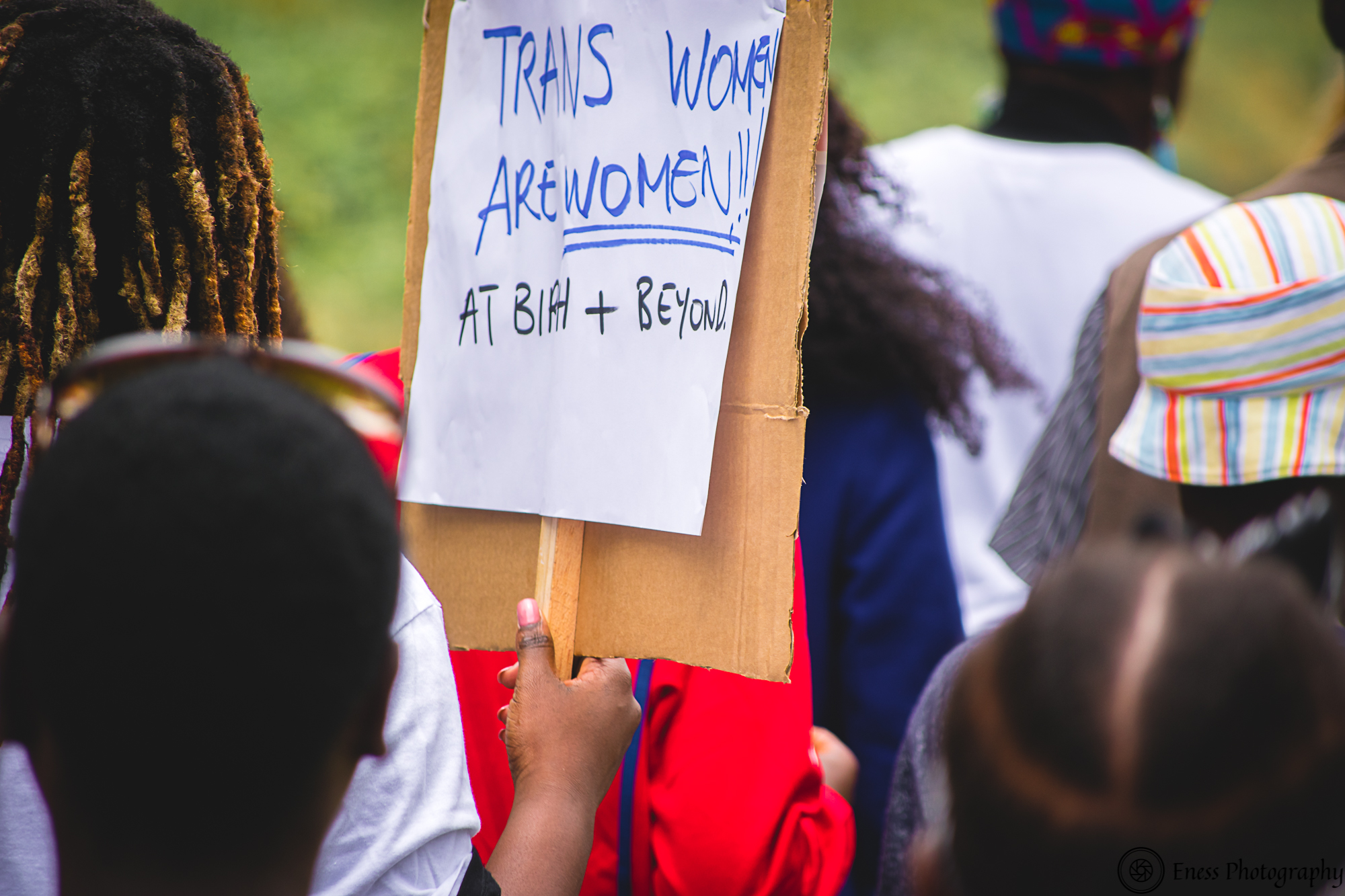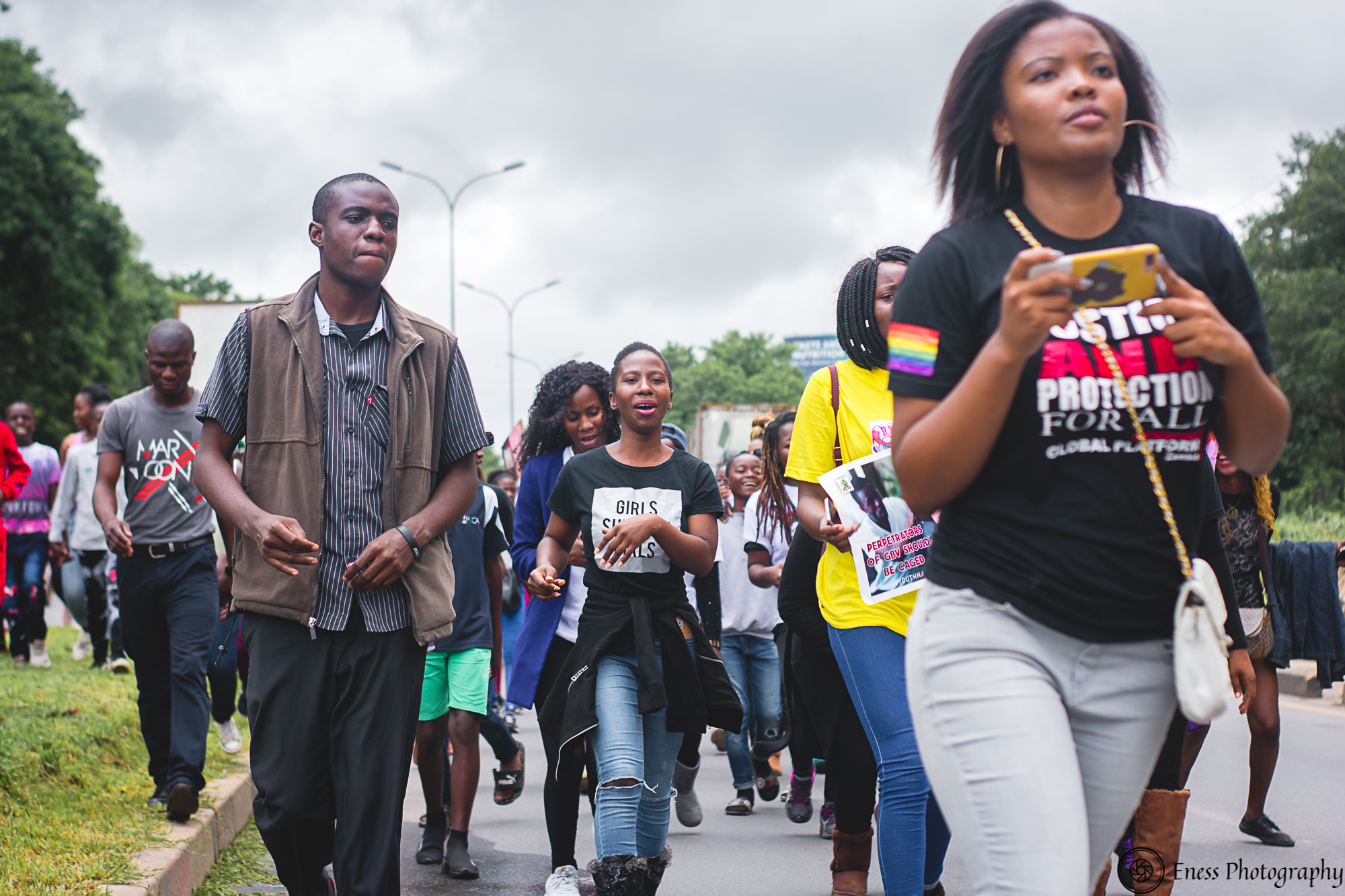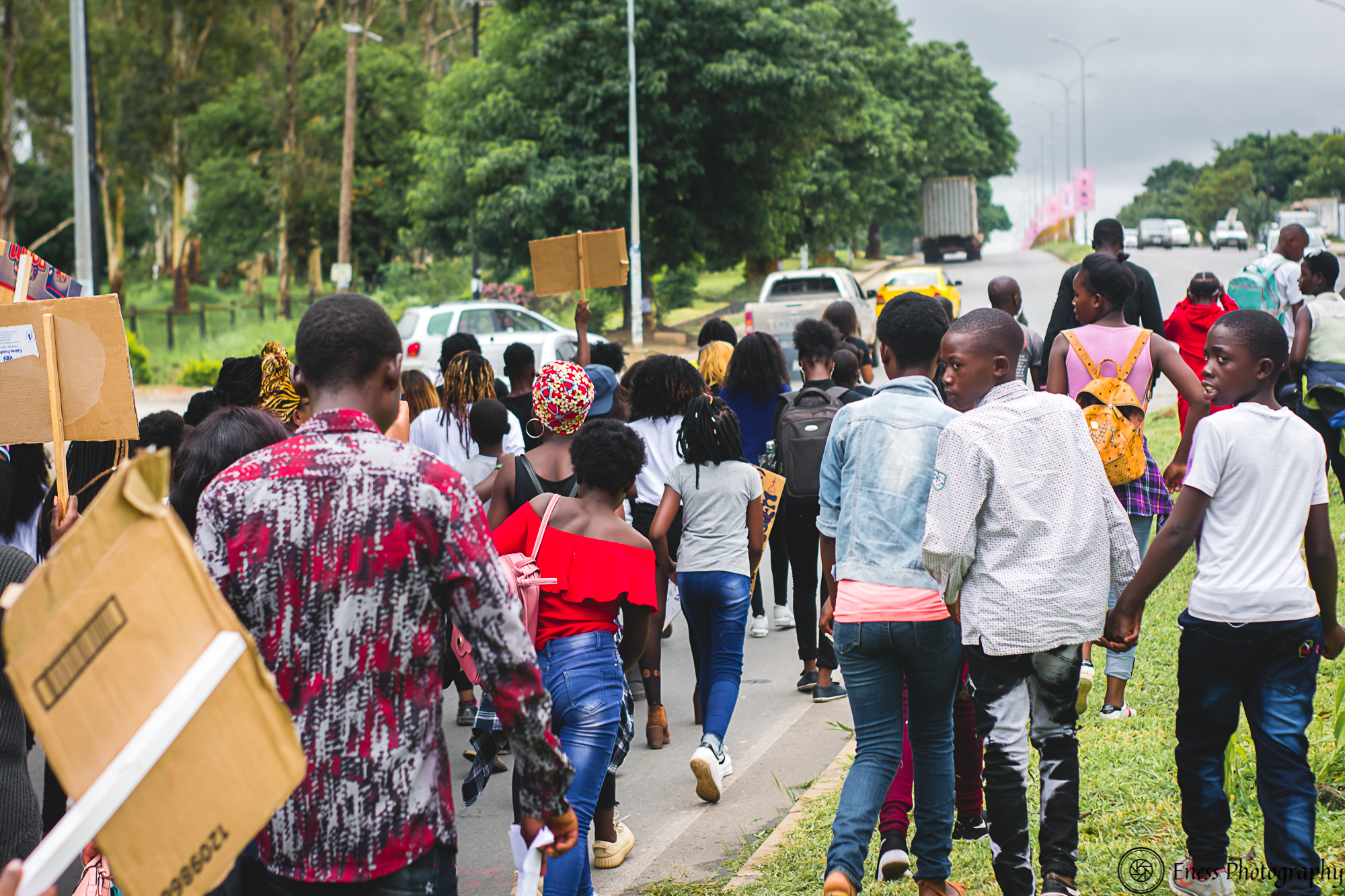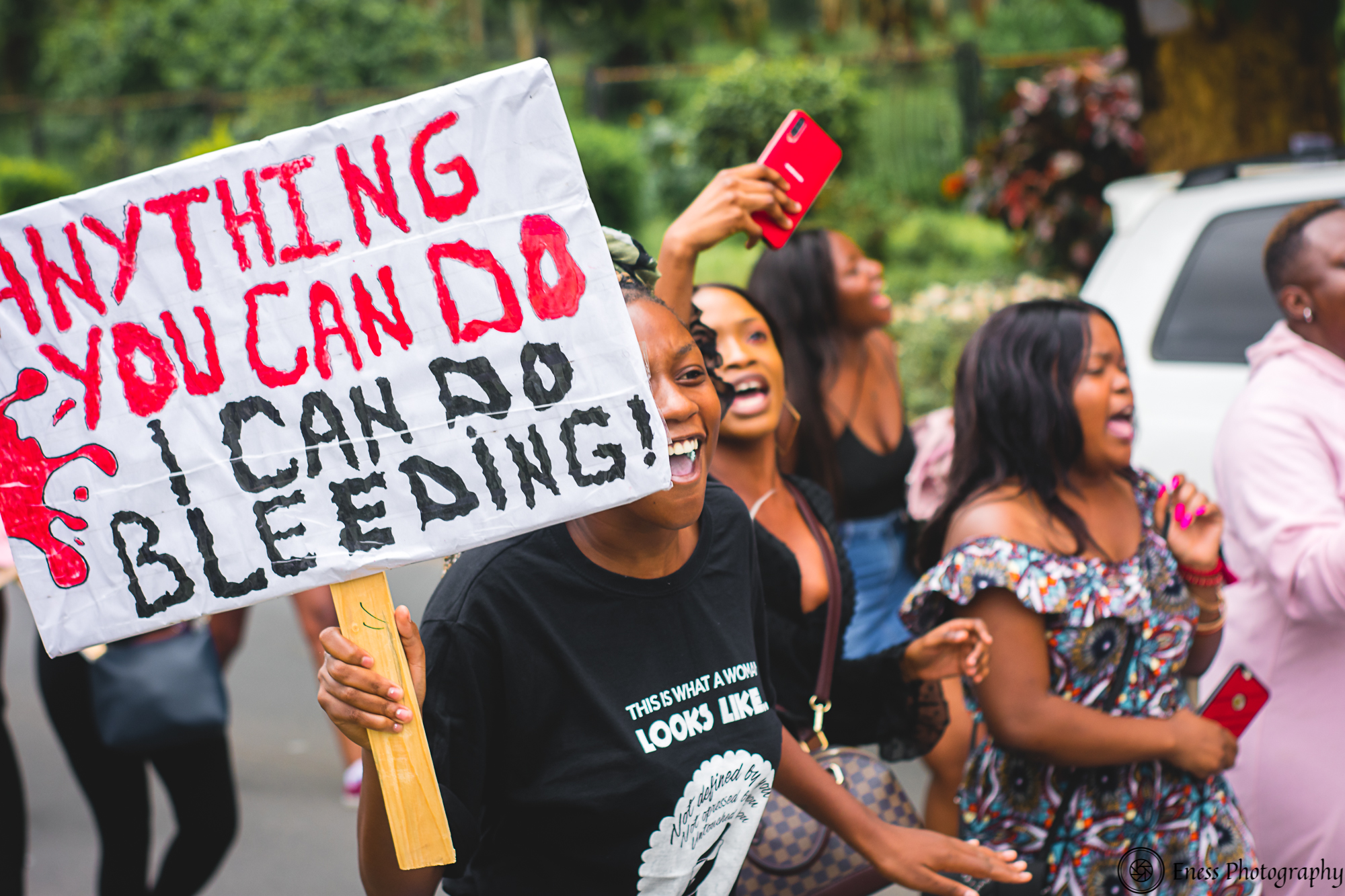Women around the world are coming together to make their voices heard on issues that range from education and reproductive health to equal political and economic representation.
One of the most vocal platforms is the global women’s march movement. It was first launched in 2017 in Washington, DC and inspired similar protests held in New York, Paris, Nairobi, Kolkata, Durban, Lima, and other major cities around the world.
As they have been doing every year now for four years, women gathered in cities around the world on Jan. 18 to demand social justice and change, as well as human rights for all women and girls.
In Zambia, the Women’s March Lusaka was organised by the Feminist Coven and Sistah Sistah Foundation.
“We wanted the march to be more personal and we decided to use the march to talk about issues affecting women in Zambia,” Annita Kay Holland from the Feminist Coven told Global Citizen.
“[Issues] like period poverty, rape culture, low wages, and climate change,” she continued. “Our goal was to educate and empower people with this march, [in particular] marginalised women like sex workers, transgender women, women living with disabilities, and refugee women.”
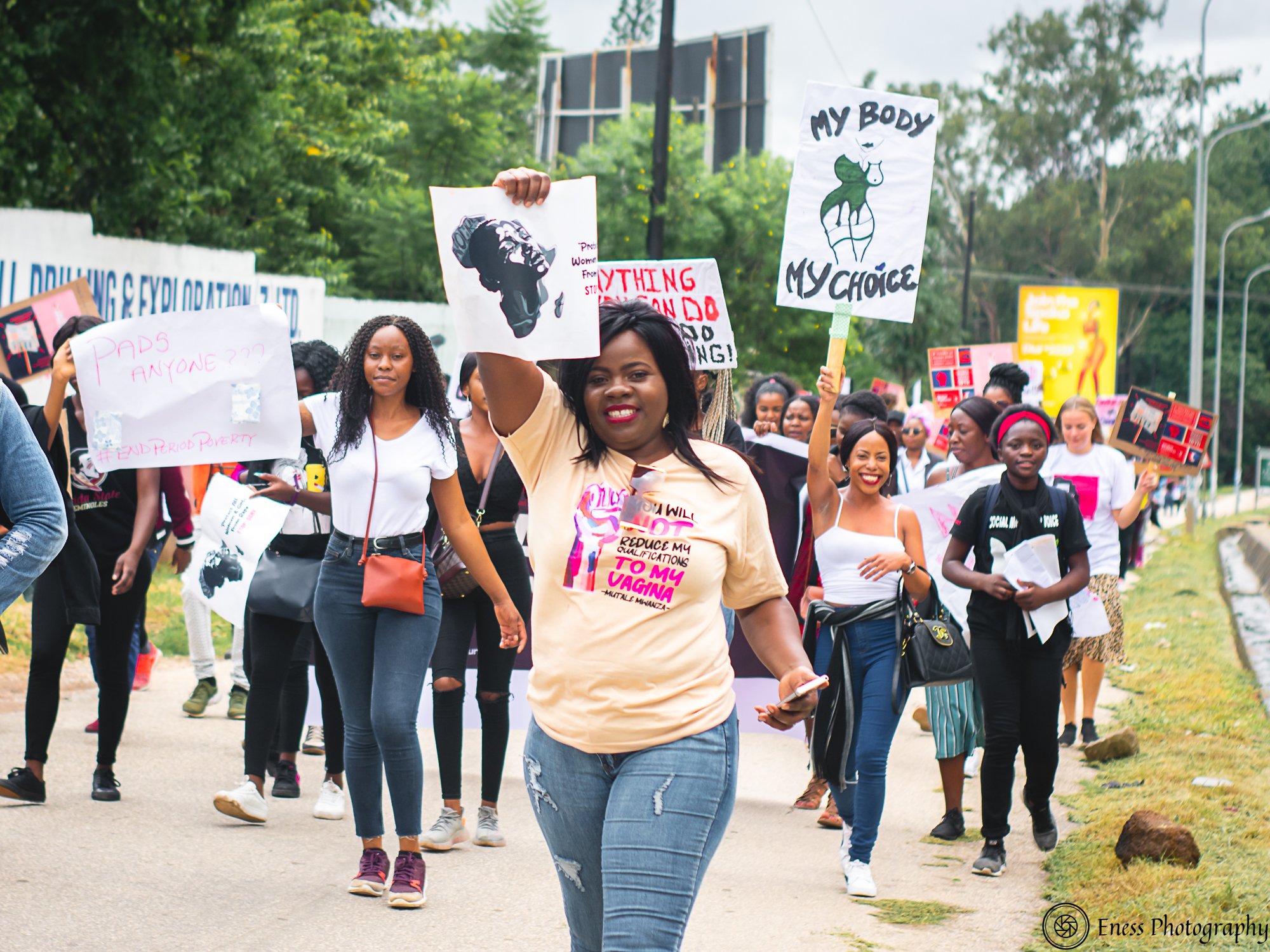
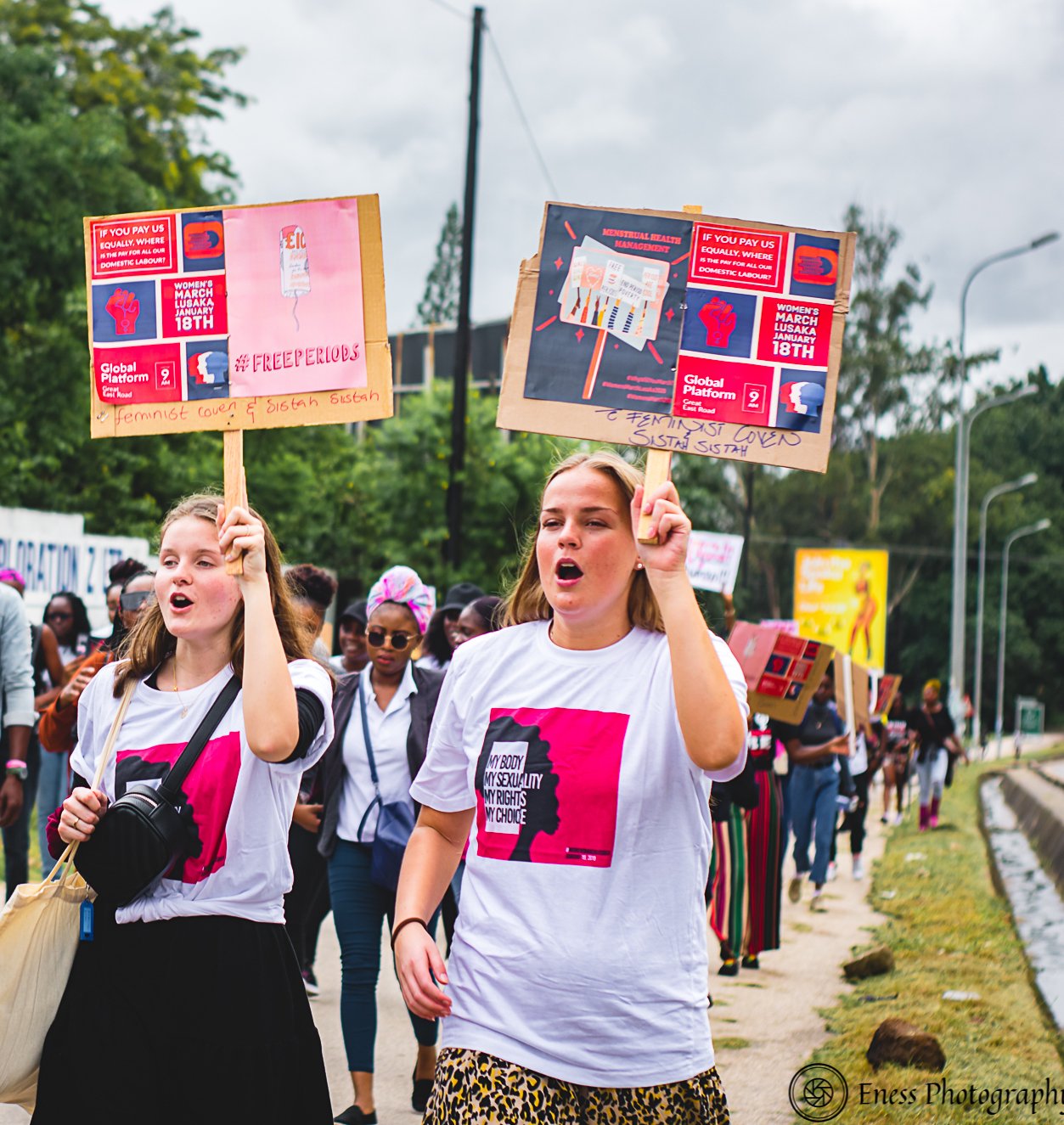
Singing Beyoncé songs, hundreds of women danced as they took to the streets of Lusaka with placards that stated: “My Body, My Sexuality. My Rights, My Choice”; “My Body, My Choice”; “We Have the Right to Be Heard”; and “Before I’m a Woman, I’m a Human.”
“We wanted to create a movement and space where they feel heard, seen, respected, and safe. And I would like to believe we did that,” Holland continued. "We had so many transgender women come out, we had sex workers, refugee women, and women living with disabilities come out. We had children we work with at Sistah Sistah from the orphanage come out, we had so many groups attend, and it was so empowering to watch.”
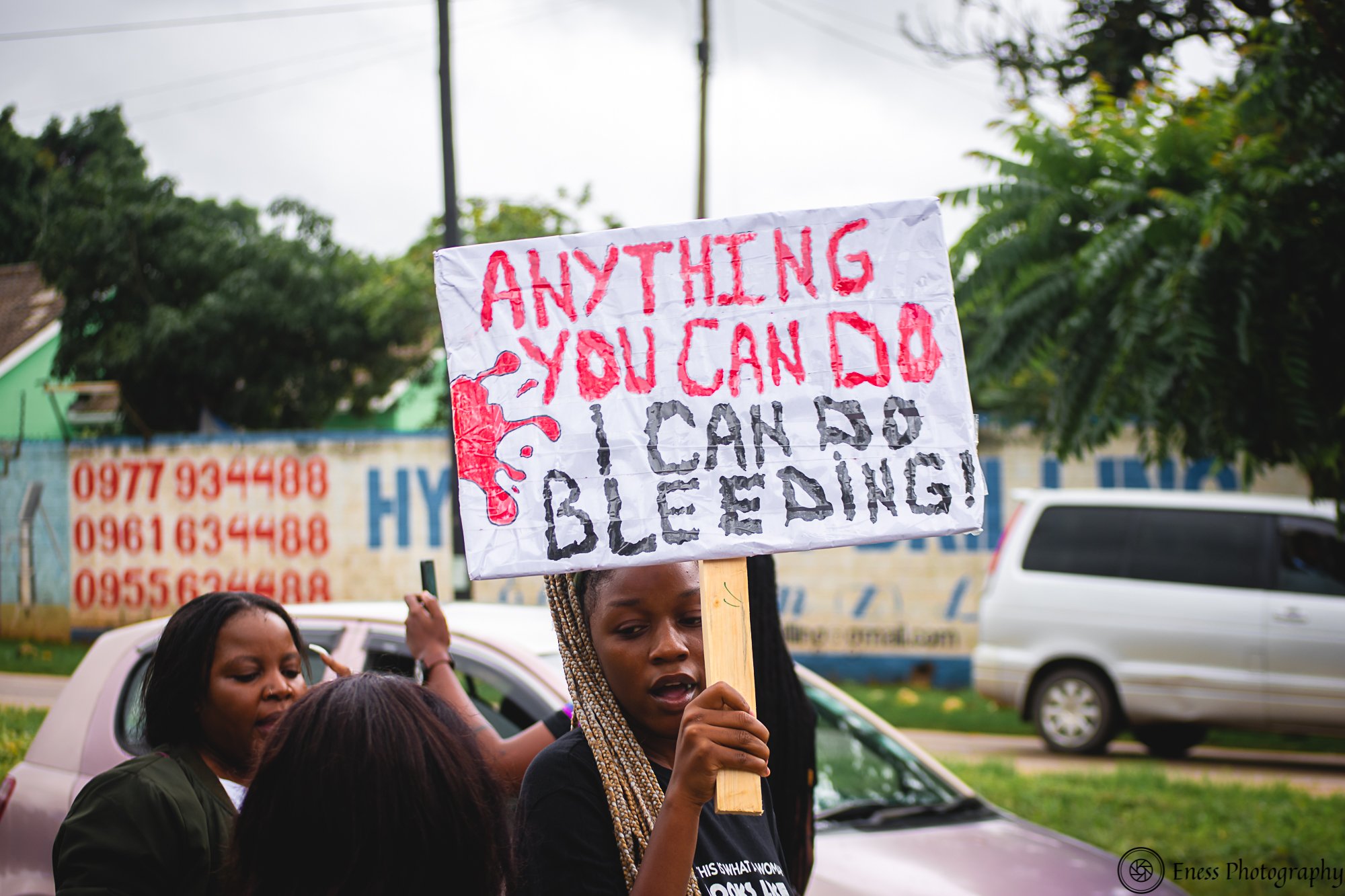
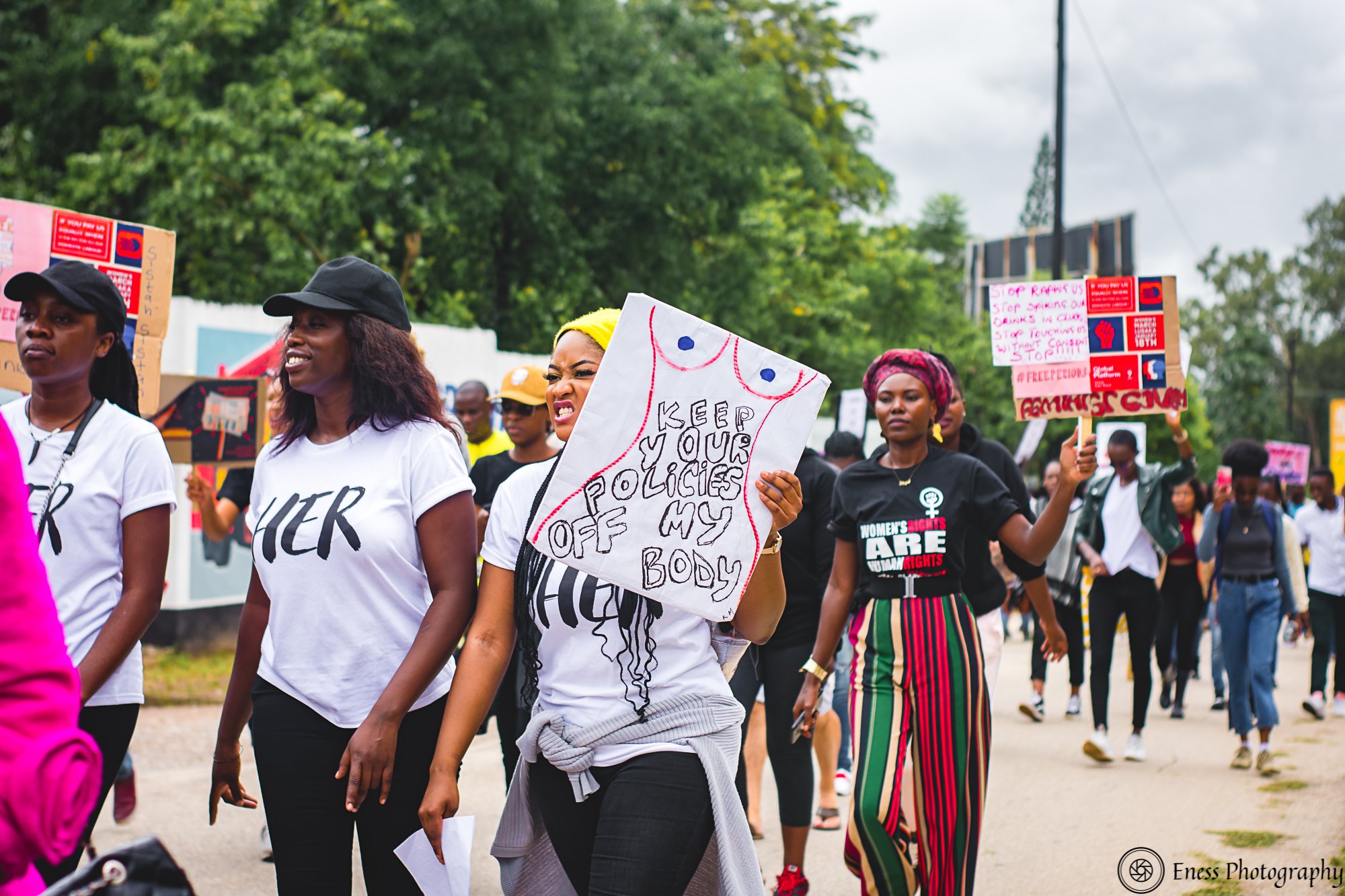
Women’s rights and gender equality are not just human rights. They are also important contributors to ending poverty. And even though some progress has been made in advancing gender equality, girls and women continue to face significant challenges.
Consider these statistics from the United Nations: 750 million and girls globally were married before they were 18 years old; 200 million girls and women in 30 countries have had their genitals mutilated in the name of culture; husbands in 18 countries have the legal right to stop their wives from working; and there are no laws protecting women from domestic violence in 49 countries.
The 2018 UN Gender Equality Index, which measures women’s rights and empowerment, ranked Zambia 131 out of 162 countries. Women’s representation in politics is lower than men’s. Women hold 18% of all parliamentary seats. When it comes to access to education, only 39.2% of women have secondary school education compared to 52.4% of men.
